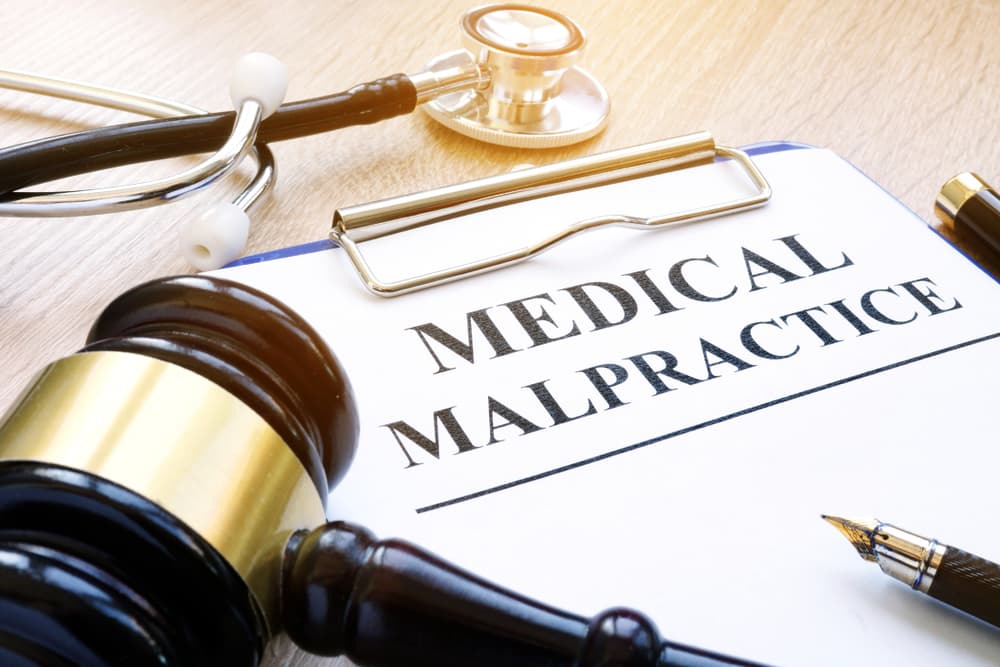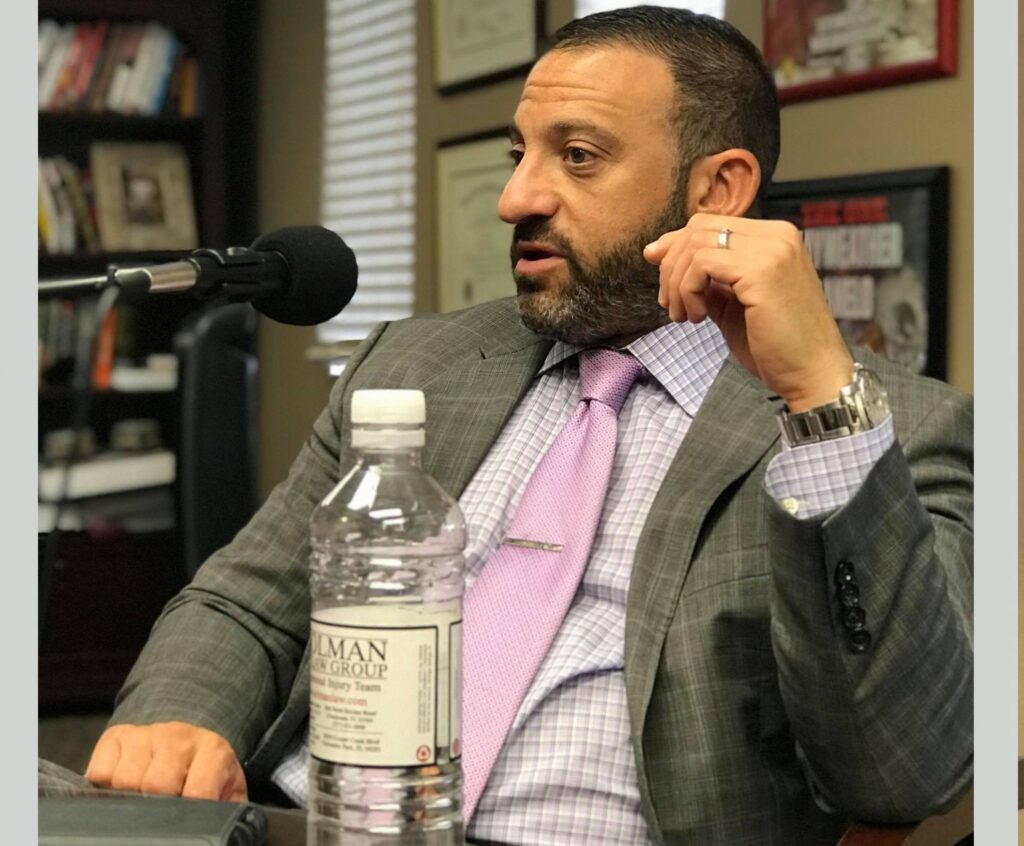The rules around medical malpractice claims in Florida are complicated, and always have an attorney who knows them inside out. Dolman Law Group Accident Injury Lawyers, PA in Fort Lauderdale has the experience you need.
Johns Hopkins Medicine's startling finding is that medical errors are behind a third of all deaths in the U.S., more than respiratory diseases. In Florida, medical malpractice suits have surged over the last few decades. At one point, the legislature overturned a cap on medical malpractice damages (Florida Statute § 766.118), allowing for fairer compensation.
With malpractice insurance rates sky-high, it's clear this is a big issue. Filing a lawsuit can offer a path to recovery for those hit by medical errors. Our Fort Lauderdale Medical Malpractice lawyers thoroughly investigate and follow specific steps, including professional certification and pre-suit settlement talks, before filing against medical professionals.
Why Choose Dolman Law Group?

Choosing Dolman Law Group means partnering with a team recognized for its legal excellence in Florida. Our Fort Lauderdale medical malpractice attorneys have a history of successful outcomes, underscored by accolades such as membership in the prestigious Multi-Million Dollar Advocates Forum.
Our selection as Florida Legal Elite and recognition in The National Trial Lawyers Top 100 reflect Dolman Law Group's commitment to client advocacy and skilled legal service. Our track record includes several multi-million dollar settlements and verdicts, demonstrating our dedication to securing the best possible outcomes for our clients. These accomplishments highlight our firm's standing as a leading legal advocate in the Fort Lauderdale area.
Conveniently located at 150 E Davie Blvd Suite 201-2, Fort Lauderdale, FL 33316, near the Florence C Hardy Park & Southside Cultural Center, our office is easily accessible to residents, providing a supportive and professional environment for those affected by medical malpractice.
Schedule A Free Consultation
Medical Malpractice Compensation
In Florida, compensation for medical malpractice encompasses various crucial areas. At Dolman Law Group, our dedicated focus extends to each aspect, ensuring meticulous attention to detail to maximize our client's recovery and rightful compensation.
Medical Expenses

In medical malpractice claims, "medical expenses" refers to a wide variety of costs a patient incurs due to substandard medical care. This includes the expense of initial and subsequent hospital stays, covering everything from room charges to surgery fees. It also includes the cost of medications prescribed for treating conditions resulting from the malpractice.
Additionally, rehabilitation costs, such as physical or occupational therapy expenses, are significant in these damages.
Beyond the immediate medical bills, ongoing treatment costs may involve:
- Long-term care.
- Regular medical check-ups.
- Future surgeries.
- Specialized home care services.
These damages cover the full spectrum of medical care costs from the point of malpractice to your recovery or ongoing treatment needs.
Lost Wages and Earning Capacity
In medical malpractice cases, lost income and earning capacity damages focus on the financial impact of your inability to work due to your injury.
This type of damage accounts for the immediate loss of income following the incident quantified through past pay stubs and employment records. It also includes future earnings that you will likely miss out on, which can be substantial, especially if the injury leads to long-term or permanent disability.
Calculating future lost earnings often requires adept economic testimony to project your potential future earnings, considering factors like career trajectory, inflation, and the impact of the injury on your ability to work. These damages are necessary for ensuring that you are financially whole, to the extent possible, after suffering from medical malpractice.
Pain and Suffering
Pain and suffering in a medical malpractice context refers to the non-economic damages you endure due to medical negligence. This includes both the physical pain and emotional distress resulting from the malpractice. Physical pain might range from chronic discomfort to severe, debilitating agony, significantly impacting your daily life. Emotional distress encompasses a wide range of psychological impacts, such as anxiety, depression, loss of enjoyment in life, and trauma.
We utilize detailed medical records, testimonies, and personal narratives to claim compensation for pain and suffering. These elements together help paint a comprehensive picture of the impact on your life.
Unlike economic damages with a direct monetary value, pain and suffering are subjective and require a nuanced approach to quantify. The compensation aims to acknowledge medical malpractice's non-tangible, yet very real, impacts on your overall well-being.
Loss of Enjoyment of Life
In medical malpractice cases, loss of enjoyment of life refers to a decrease in your quality of life following an injury. This concept captures how the injuries have hindered your ability to partake in hobbies, activities, and daily pleasures you once enjoyed. It recognizes your injury's non-physical, yet significant, impact, highlighting that harm can extend beyond the physical and financial aspects.
The nature of this loss is highly personal, varying based on individual lifestyles and interests. Seeking compensation for this loss means illustrating the profound changes in your life due to the injury.
Punitive Damages
In medical malpractice cases, punitive damages financially penalize those whose negligence is deemed particularly reckless or intentional. Unlike compensatory damages, which aim to reimburse the patient for their losses, punitive damages aim to punish the wrongdoer and discourage others from engaging in similar conduct.
For instance, in a medical malpractice scenario, if a surgeon operates while under the influence of alcohol, resulting in severe patient harm, this can be grounds for punitive damages. Such behavior goes beyond mere negligence, demonstrating a willful disregard for patient safety. The court might award punitive damages to set a precedent, discouraging such behavior among medical professionals.
Not every case warrants these damages; courts reserve these damages for situations where the defendant's conduct exceptionally harmed or showed blatant disregard for others' well-being. The aim is to communicate clearly that such conduct is unacceptable and has severe consequences.
For each type of compensation, our team gathers evidence and consults with medical professionals. It develops legal strategies to build a compelling case, ensuring our clients receive the full compensation they deserve for their suffering.
Our Focus on Fort Lauderdale Medical Malpractice Cases
In cases involving misdiagnosis, surgical errors, or medication mistakes, we leverage our extensive experience and compassionate approach. Our dedicated efforts are focused on advocating for our clients, ensuring they receive the rightful justice and compensation they deserve during these challenging times.
Surgical Mistakes

Focusing on surgical mistakes in our practice at Dolman Law Group forms a large part of our medical malpractice cases. These errors can occur from the operating room to the recovery phase. Surgical mistakes might include incorrect procedures, operating on the wrong body part, anesthesia errors, or even leaving surgical instruments inside the patient.
In postoperative care, negligence can manifest as poor infection control, inadequate patient condition monitoring, or failure to recognize and treat complications promptly. These errors can have devastating effects on patients, leading to further surgeries, prolonged recovery, or even permanent disability.
Our approach involves:
- A detailed examination of surgical protocols.
- A review of medical records.
- Collaborating with medical professionals to determine the breached standard of care.
We advocate tirelessly for our clients, aiming to comprehensively address the extensive physical, emotional, and financial burdens these surgical mistakes have imposed on them. Our commitment extends beyond mere legal representation; we strive to provide unwavering support and guidance, ensuring that each client's unique challenges are understood and addressed throughout their journey toward recovery and justice.
Childbirth Errors
Childbirth errors can occur during prenatal care, labor, and delivery and can have lasting impacts on both the mother and the child.
Prenatal care errors might include failing to diagnose a mother's medical condition that can affect childbirth or improperly monitoring the fetus's development.
During labor and delivery, errors can range from mismanaging complications like birth asphyxia to incorrect use of birthing tools, leading to injuries to the baby or the mother.
Childbirth errors can result in a wide array of serious consequences, such as cerebral palsy, hypoxic-ischemic encephalopathy, or severe physical trauma to the mother.
In these cases, our approach involves:
- A thorough review of medical records.
- Consultation with obstetrics and gynecology doctors.
- A comprehensive legal strategy to seek justice and compensation for our clients.
We aim to address the profound emotional and financial toll these errors can have on families, advocating for their rights and their future.
Medication Mistakes
In our medical malpractice work at Dolman Law Group, we frequently encounter cases involving medication mistakes. These errors can take several forms, such as prescribing the wrong medication, incorrect dosages, or failing to recognize dangerous drug interactions. The consequences of such errors can be severe, ranging from temporary health setbacks to life-threatening conditions or even death.
Tackling medication mistake cases involves an in-depth investigation into the prescribing process, including how the medical provider determined the medication and dosage, the pharmacy's role in dispensing the drug, and any system-wide failures that contributed to the mistake. We also work with medical professionals to understand the implications of the error and its impact on the patient's health. We aim to ensure that clients affected by such errors receive compensation for their additional medical treatments, pain and suffering, and any long-term health implications.
Fighting the Insurance Company

Battling against insurance companies in medical malpractice cases can be one of the most challenging aspects of your claim. These companies frequently aim to reduce or reject claims. This involves sophisticated techniques to devalue your case and protect the company's financial interests.
Disputing Severity of Injury
Insurance companies often downplay the severity of injuries to reduce payout amounts. They might argue that the injury is less serious or unrelated to the alleged malpractice. In response, we gather comprehensive medical evidence and professional opinions to validate the severity and impact of the injury.
Questioning Malpractice-Injury Link
Insurers frequently challenge the connection between the medical error and the injury. To counter this, we demonstrate causation, using medical records and testimonies to establish a clear link between the malpractice and the resulting harm.
Arguing Standard of Care Met
Insurers might claim that the medical care met acceptable standards, suggesting no malpractice occurred. Our strategy involves leveraging medical professionals to illustrate how the care deviated from standard practices, establishing negligence.
Lowball Settlement Offers
It's common for insurers to propose settlements that inadequately compensate for damages. We negotiate aggressively to ensure our clients receive fair compensation, fully reflecting the extent of their losses and suffering.
Delaying the Claims Process
Delay tactics by insurance companies in medical malpractice claims can be a frustrating hurdle. They often use this strategy to wear down claimants, hoping for a quick, undervalued settlement. At Dolman Law Group, we understand why the insurers use these tactics and are well-prepared to counter them. Our approach involves consistent and assertive follow-ups, ensuring your case keeps progressing. We apply legal pressure where necessary, highlighting the urgency and seriousness of your claim. This persistence speeds up the process and sends a clear message that settling for less than what's fair is not an option for our clients.
What to Do After a Medical Error
If you suspect you're a victim of medical malpractice, taking specific steps can strengthen your case:
- Seek Immediate Medical Care: Consult a different healthcare provider to assess and address the harm caused by the error.
- Document Everything: Keep a detailed record of your treatments, symptoms, and conversations with healthcare professionals. Note dates, times, and the nature of discussions.
- Preserve Evidence: Secure copies of all medical records, including prescriptions, test results, and doctor's notes related to the incident.
- Track Expenses and Impacts: Document all expenses incurred due to the error and note how it has impacted your daily life, work, and well-being.
- Avoid Communication with Insurance Companies: Avoid discussing your case with insurance representatives without legal guidance.

You aren't alone if you suspect you've experienced medical malpractice in Fort Lauderdale. The personal injury lawyers in Fort Lauderdale from Dolman Law Group stands ready to support you. Contact us at (754) 208-1130 or visit our welcoming office at 150 E Davie Blvd Suite 201-2, Fort Lauderdale, FL 33316.
We offer a free, no-obligation consultation to discuss your case. Our team of lawyers has won millions for our clients. Take the first step towards resolution and recovery by contacting us today.